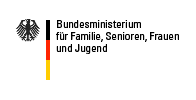Strategy
Gender Mainstreaming as a strategy
Although gender equality between men and women has been established by law in many respects, there is still even now a vast gap between gender equality goals and social reality nearly everywhere world-wide. International development cooperation organisations have reacted to this with the strategy of “Gender Mainstreaming”, the goal of which is the actual implementation of gender equality. For example, governments have been charged with “mainstreaming” Gender perspectives in all areas of politics in the final document of the World Women’s Conference in Beijing in 1995. Gender Mainstreaming has in the meantime not only been implemented in all United Nations organisations, but has also entered European law in the Amsterdam Treaty of 1999.
The Federal German Cabinet decided in 1999 that Gender Mainstreaming should be a guiding principle in all areas of administrative policy. Since 2000, Section 2 of the Joint Rules of Procedure for the Federal Ministries (GGO) obliges Ministries to observe the goal of gender equality in all political, legislative and administrative measures. An inter-Ministry working group headed by the Federal Ministry for Family, Senior Citizens, Women and Youth (BMFSFJ) has been working on implementation since 2000. But Gender Mainstreaming has also been accepted as a strategy by many federal states and local authorities as well as other actors in politics and industry and various associations. An outstanding example is the European Structural Funds. Many experts are already working in this field as consultants. The English term “Gender Mainstreaming” has now become accepted and is used internationally.
One part of Gender Mainstreaming is Gender budgeting. The goal of Gender budgeting is the realisation of gender equality between men and women in the distribution of resources.
The Federal German Cabinet decided in 1999 that Gender Mainstreaming should be a guiding principle in all areas of administrative policy. Since 2000, Section 2 of the Joint Rules of Procedure for the Federal Ministries (GGO) obliges Ministries to observe the goal of gender equality in all political, legislative and administrative measures. An inter-Ministry working group headed by the Federal Ministry for Family, Senior Citizens, Women and Youth (BMFSFJ) has been working on implementation since 2000. But Gender Mainstreaming has also been accepted as a strategy by many federal states and local authorities as well as other actors in politics and industry and various associations. An outstanding example is the European Structural Funds. Many experts are already working in this field as consultants. The English term “Gender Mainstreaming” has now become accepted and is used internationally.
One part of Gender Mainstreaming is Gender budgeting. The goal of Gender budgeting is the realisation of gender equality between men and women in the distribution of resources.
erstellt von Administrator
—
zuletzt verändert:
02.01.2010 20:07






